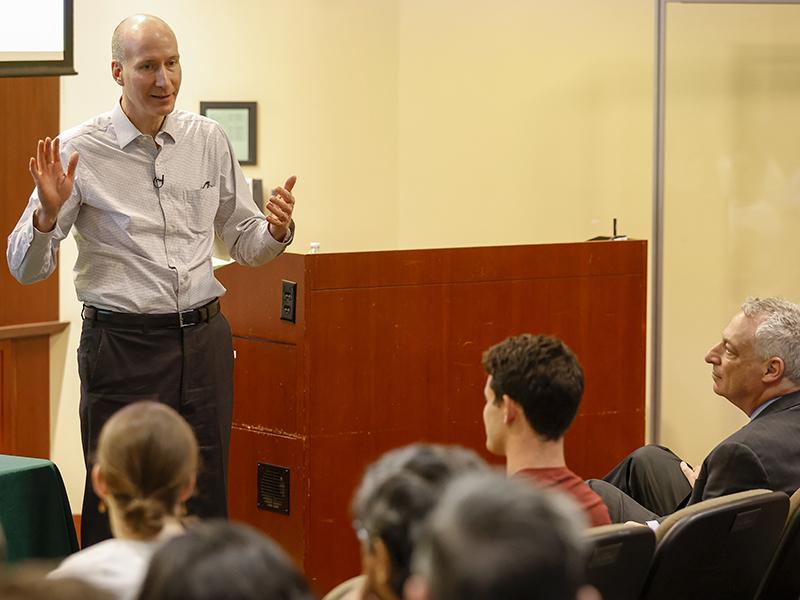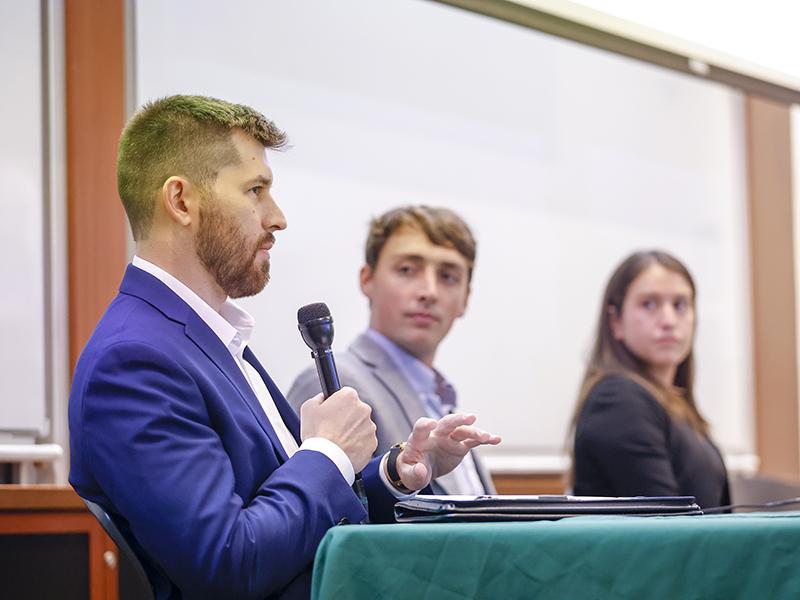Deputy secretary of energy touts clean energy careers at Tulane visit
From engineering and law to policymaking and science, there is no better time to pursue a career in energy and sustainability than right now.
That was the message that David Turk, deputy secretary of the U.S. Department of Energy, brought to Tulane University in April in a talk billed as a “powerful conversation” on the future of energy and career opportunities.
The program was a collaboration between the Tulane Energy Institute of the A. B. Freeman School of Business, the School of Science and Engineering and the School of Liberal Arts. It included a panel of graduate and undergraduate students who shared their passion for the clean energy field and how they plan to pursue it as a career.
Before a standing-room-only crowd of students and professors at the Goldring Woldenberg Business Complex, Turk emphasized the countless opportunities that embracing renewable energy sources presents for job creation and economic growth.
“My hope in coming here is to share some of my experiences and light a fire,” Turk said. “For some of you, maybe you've already decided to make a career in climate or clean energy; for others, you’re curious about what a career could look like in that space.”
He said he’s encouraged by the number of people who are entering the clean energy field. “A lot of people have stepped up and become lawyers, engineers and scientists, all deciding to make career choices that [help them achieve] that kind of progress.”
The panel featured Tulane students John Cornwell, a financial analyst and candidate for a Master of Management Energy (MME) in the A. B. Freeman School of Business; Owen Harris, who graduates in May with a Bachelor of Science degree in engineering physics; and Eliana Winderman, a lawyer who is pursuing an MBA/MME, with a concentration in finance and analytics.
Winderman plans to use her law and business degrees to focus on the transition of the nation’s energy infrastructure to more renewable energy. Harris is interested in the technology side of clean energy and plans to pursue a career in solar energy.
Cornwell said his passion for the outdoors convinced him to pursue a career that combines his background in finance with renewable energy. A self-described outdoorsman, he said he wants to “help preserve some of the beautiful parts of this country so that people can continue to enjoy them.”
Turk also shared his own journey to the number two position at the Department of Energy. Born in Quito, Ecuador, he is a graduate of the University of Illinois at Urbana-Champagne and the University of Virginia School of Law. His resume includes positions as deputy executive director of the International Energy Agency, a position in the Obama administration spearheading the launch of a global effort to enhance clean energy innovation, and deputy special envoy for climate change at the State Department.
“For someone who’s worked in this space for years and years, it gives me hope that democracy can work, policy can work, incentives can work, empowering the private sector, doing all the kinds of things that we’re doing,” he said.


